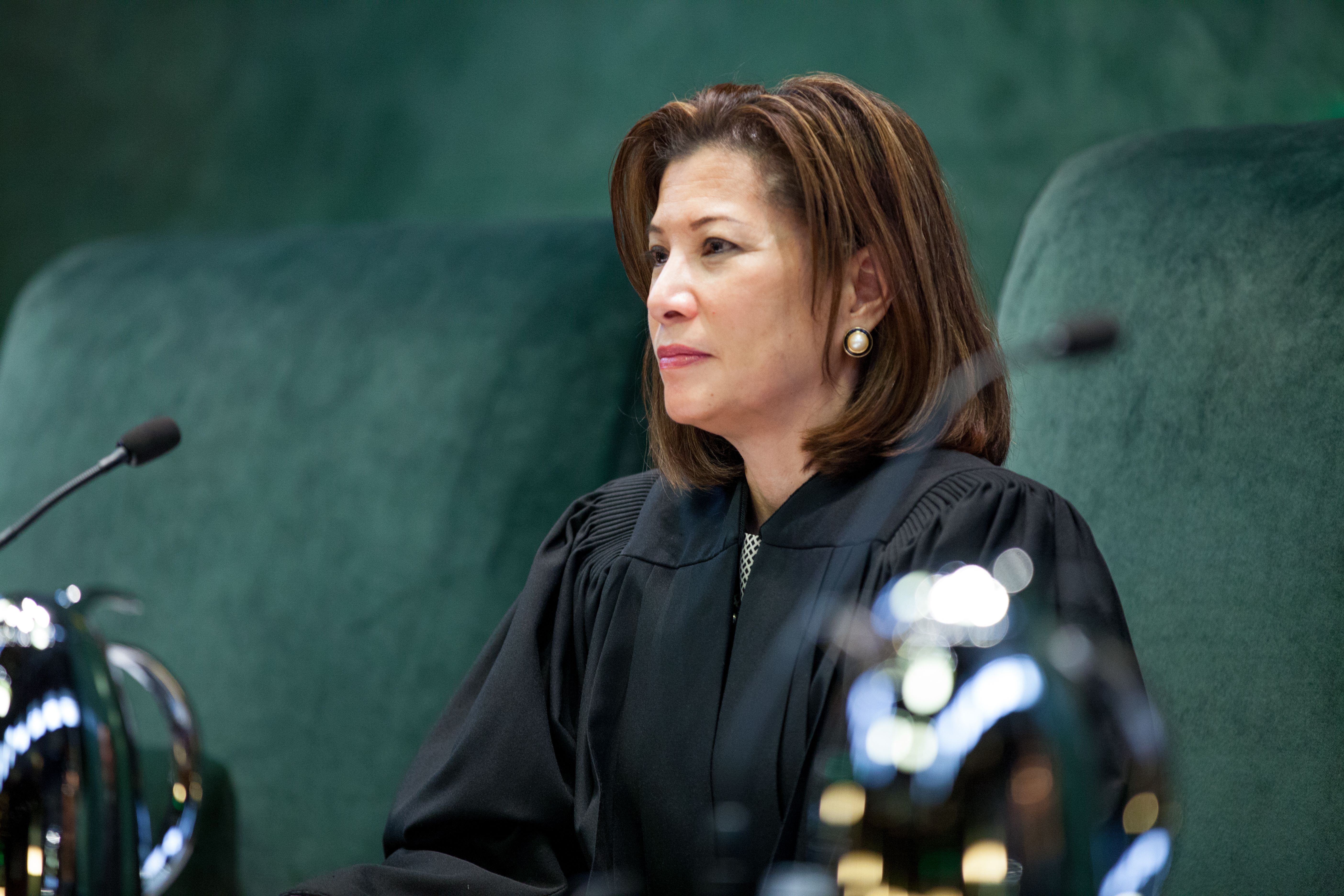Government
Nov. 7, 2019
Justices pepper both sides with questions on law requiring tax return for ballot access
The multi-front war over access to President Donald Trump’s taxes landed in the California Supreme Court on Wednesday, with justices hearing arguments over whether a law demanding those returns is permissible under the state Constitution.





SACRAMENTO -- The multi-front war over access to President Donald Trump's taxes landed in the California Supreme Court on Wednesday, with justices hearing arguments over whether a law demanding those returns is permissible under the state Constitution.
Justices peppered counsel with questions suggesting each side's positions were extreme.
Arguing for California Republican Party Chair Jessica Millan Patterson, attorney Thomas W. Hiltachk got barely a minute into his opening arguments before he was interrupted in Patterson v. Padilla S257302 (Cal. Sup. Ct., filed Aug. 6, 2019). Deputy Attorney General Jay C. Russell was also challenged as he attempted to defend the law, SB 27, which demands candidates for president or governor provide five years of tax returns in order to appear on the state's primary ballot.
The justices asked Russell many of the same kinds of questions Republican lawmakers posed during legislative debates. This included queries over whether candidates could be forced to provide their high school grades or mental health records.
"Under your arguments and the Legislature's plenary authority, there is no limit on the requirements we can place?" Chief Justice Tani G. Cantil-Sakauye asked in one typical exchange.
"At some point it would inhibit the process I'm sure," Russell replied. He added providing tax returns is not "bizarre" but rather something candidates have traditionally done.
Hiltachk, a partner with Bell, McAndrews & Hiltachk LLP in Sacramento, rooted his arguments in Proposition 4, a 1972 voter initiative calling for open primaries. This was enacted to counter "favorite son" rules that allowed people who were not true candidates -- namely then-Gov. Pat Brown in 1960 -- to put their names on the ballot to earn delegates and exert power over the presidential nomination.

"That begs the question: What is an open primary?" Hiltachk said in his opening.
Hiltachk took an expansive view, claiming Proposition 4 strictly limits the kinds of requirements the Legislature can place on candidates. Justices Goodwin H. Liu and Mariano-Florentino Cuéllar pushed back. At one point Liu said the Republicans' position seemed to be the Legislature could not even require candidates to "fill out forms" let alone tackle "foreign interference."
"Can the state not do anything to safeguard the integrity of its elections? ... Your position is that it's up to the voters?" Liu asked.
Hiltachk replied that since Proposition 4, the answer is largely yes. He added, "This seems like a solution in search of a problem that doesn't exist."
He also took on SB 505, a bill Gov. Gavin Newsom signed in July on the same day as SB 27. Hiltachk said that law, which defines a "recognized candidate" as someone who meets "specified criteria," is part of the Legislature's attempt to sidestep the limits imposed by Proposition 4.
Justices also pushed back on Russell's positions that the Legislature is largely unfettered by Proposition 4. Russell argued the secretary of state can place only "narrow" limits on the Legislature's ability to pass election laws.
"The Legislature can trump anything the secretary of state does?" Cueller asked. "There is a middle position."
Russell said a tax return is not a "characteristic" that would limit the kinds of people who can run for office. He framed SB 27 as a legal and permissible response to new threats to election integrity.
"The Legislature very often reacts to current events," Russell said. "The Legislature did not want what is happening to become the new normal."
Guardrails on legislative action are more appropriately taken up in federal court on the U.S. Constitution, Russell argued. He urged the justices not to concern themselves with a parallel set of constitutional challenges of the state's law in the federal courts.
Trump v. Padilla, 19CV01501 (E.D. Cal., filed Aug. 6, 2019) has been appealed to the 9th U.S. Circuit Court of Appeals after U.S. District Court Judge Morrison C. England Jr. in September ruled SB 27 unconstitutional SB 27, under the qualifications clause of U.S. Constitution and illegal under the federal Ethics in Government Act.
Malcolm Maclachlan
malcolm_maclachlan@dailyjournal.com
For reprint rights or to order a copy of your photo:
Email
jeremy@reprintpros.com
for prices.
Direct dial: 949-702-5390
Send a letter to the editor:
Email: letters@dailyjournal.com





